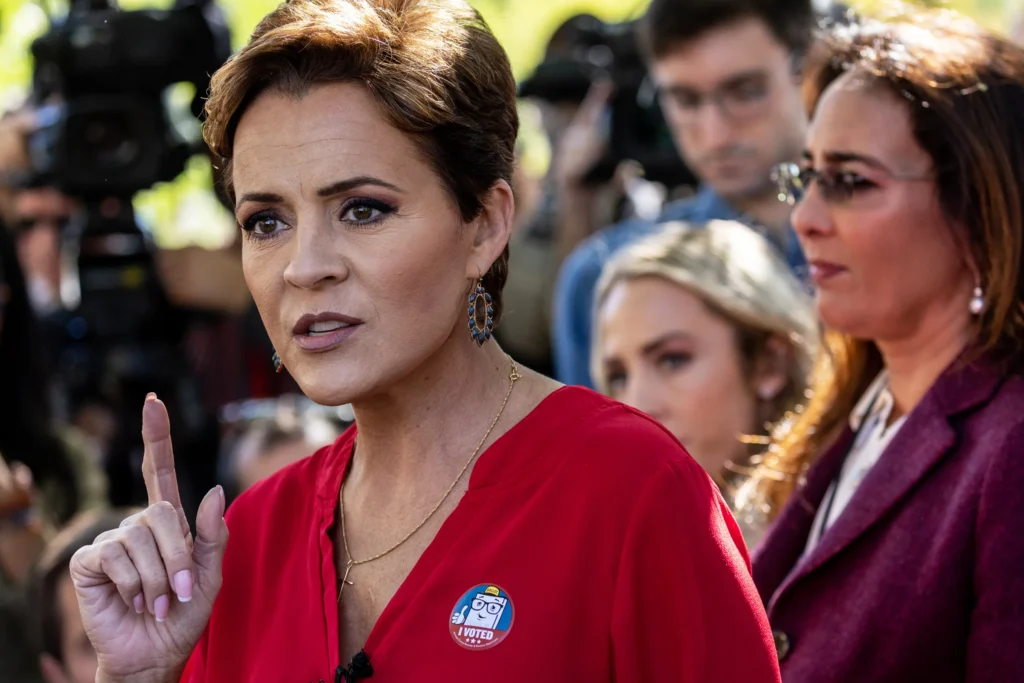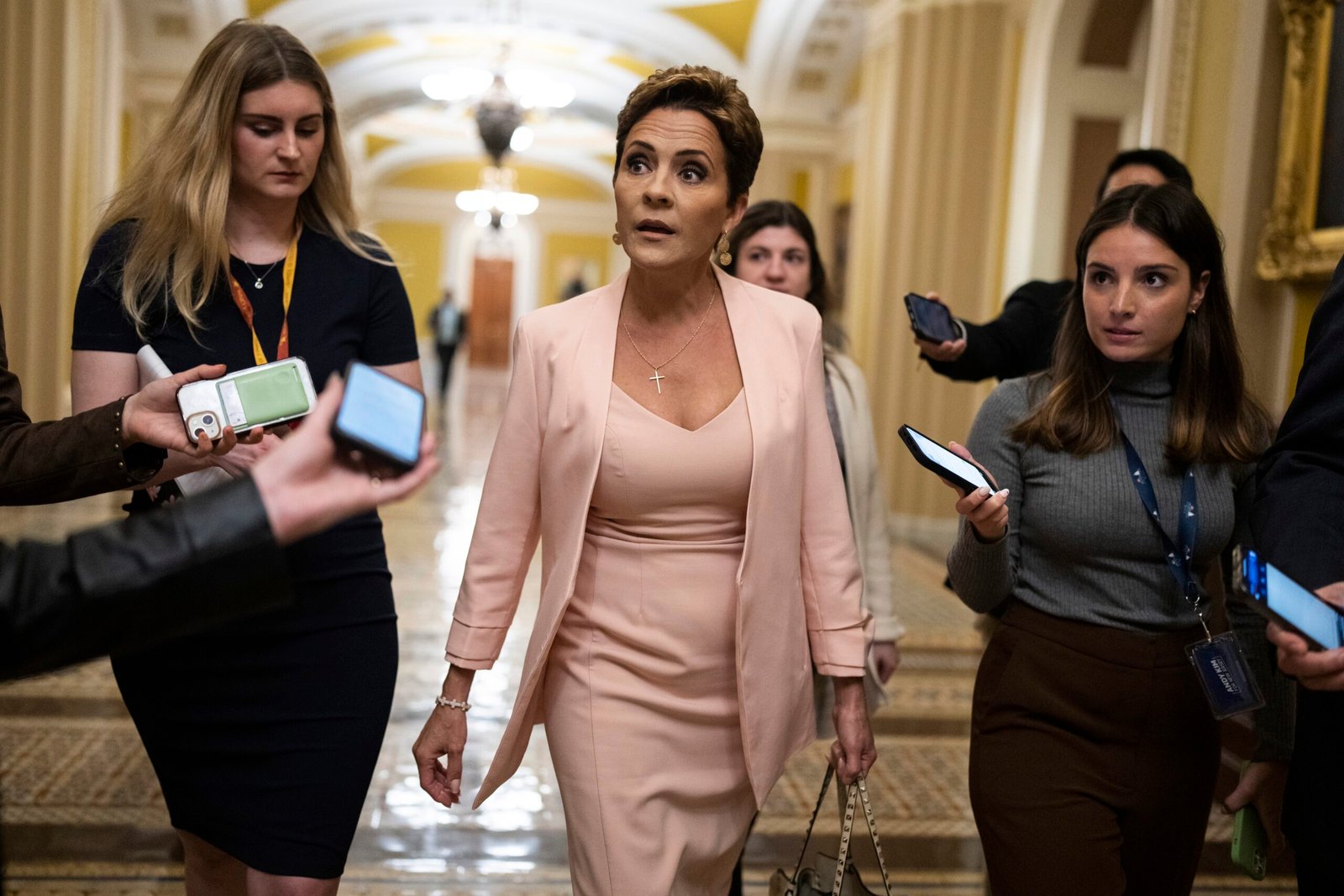Kari Lake is a prominent figure in Arizona politics, best known for her candidacy in the recent gubernatorial election. Before her foray into politics, Lake enjoyed a successful career as a news anchor, where she garnered significant recognition for her work at a local television station. This background in journalism provided her with valuable communication skills and insights into the concerns of Arizona residents, seeding her ambition to transition into the political arena.
Throughout her campaign, Kari Lake emphasized a platform centered around core issues that resonate with many constituents in Arizona. Among these were immigration reform, education improvement, and economic revitalization post-pandemic. Lake’s strong stance on border security particularly defined her approach, appealing to voters who prioritize safety and regulation. Her emphasis on educational reform aimed to address grievances from parents and educators, advocating for greater school choice and accountability in the education system.
The significance of the Kari Lake results transcends her personal ambitions. The election represented a pivotal moment in Arizona’s political landscape, showcasing the growing divide in voter preferences and the evolving dynamics of the electorate. Kari Lake’s campaign was emblematic of a broader national trend where candidates with outsider status and a non-traditional background are increasingly challenging the political establishment. The responses to her platform and policies indicate a shift in expectations from voters, suggesting conditions for future candidates navigating similar paths.
As the election unfolded, it became clear that Kari Lake’s journey was not limited to her personal aspirations; it illustrated a larger narrative about the intersection of media, politics, and public opinion in contemporary Arizona. The decision made by voters in this election will likely have long-lasting implications, shaping the state’s future governance and political climate.
Analysis of the Kari Lake Results
The Kari Lake results from the recent election present a multifaceted view of voter sentiment in Arizona. With a total of over 1.2 million votes cast for her, Kari Lake garnered approximately 49% of the vote, competing closely with her primary opponent, who secured around 48%. This narrow margin suggests a deeply divided electorate, highlighting the significant support Lake received, particularly in Maricopa County, which is known for its diverse demographics and urban influence.
Examining the voting statistics reveals not only the total votes but also notable shifts in voter demographics. Kari Lake’s campaign resonated particularly well among white, suburban voters and those identifying as independents. The results demonstrate a trend where younger voters in urban areas predominantly leaned towards her opponent, indicating a generational divide. Additionally, a significant turnout from rural regions favored Lake, illustrating the importance of regional influences in the election landscape.
In terms of party affiliation, Kari Lake maintained strong support from Republican voters, with exit polls indicating that over 90% of party members backed her candidacy. In contrast, her opponent attracted a diverse coalition of Democrats, independents, and centrist Republicans, underscoring the polarized political climate in Arizona. Overall, the results encapsulate the complex interplay of identity politics, regional preferences, and campaign strategies that played a pivotal role in the election outcome.
The implications of these voting patterns suggest that while Kari Lake achieved notable success, her results also highlight the need for strategic engagement with underrepresented voter groups moving forward. Understanding these dynamics is crucial for future electoral strategies, both for Lake herself and the wider Republican Party in Arizona, as they seek to fortify their presence in a state that is gradually evolving politically.
Public Reactions and Media Coverage
The Kari Lake results generated a wide array of responses, reflecting the deeply polarized political landscape. Social media platforms became a hub for discourse, with users expressing a mix of disappointment, celebration, and skepticism regarding the election outcomes. Supporters of Kari Lake often lauded her campaigning strategies, emphasizing her strong stance on key issues as a reason for her impressive showing at the polls. This faction also perceived her performance as a testament to the growing influence of grassroots movements within the Republican Party. Hashtags related to Lake’s candidacy trended, indicating significant engagement and mobilization among her base.

Conversely, detractors of Kari Lake expressed concern about the implications of her results for the future political climate. Many took to various social media channels to voice apprehensions about the potential entrenchment of divisive political rhetoric. Traditional media outlets mirrored these sentiments, providing analysis on how the outcomes exemplified a broader trend toward populism. Coverage varied between supportive narratives celebrating her political victories and critical assessments warning against the repercussions of her ideology.
Political analysts also weighed in heavily on the Kari Lake results, dissecting them in light of the larger national context. Some suggested that her performance could signal a shift in voter priorities, especially among independents and moderates. This analysis prompted discussions about how political campaigns might evolve in response to outcomes similar to Lake’s. Significant narratives that emerged included calls for greater voter engagement among communities previously overlooked by political leaders, a development that could reshape future election strategies.
The overall sentiment surrounding the Kari Lake results thus illustrates a complex interplay between fervent support and critical opposition, pointing to the likelihood of continued dialogue and debate as the electoral landscape evolves.
Looking Ahead: Future Implications of the Kari Lake Results
The Kari Lake results have not only prompted a significant dialogue regarding her current political standing but have also opened the door to various implications for her future endeavors. As an established political figure, Lake’s performances in recent elections will likely inform her potential candidacy in future races. The response to her campaign strategies and policy positions suggests a dedicated supporter base, but also highlights the need for adaptability in addressing evolving voter concerns as she considers her next moves on the political stage.
The direction of Kari Lake’s political career also hinges on how her results are interpreted by her party and rivals. Within the Republican Party, her ability to galvanize support around key issues, such as immigration and education reform, will likely dictate future campaign strategies. As Lake advocates for policies resonating with conservative voters, her leadership could inspire a ripple effect, motivating other candidates to embrace similar platforms. Conversely, opponents will analyze the Kari Lake results to recalibrate their messaging and strategies, devising plans to counter her influence and attract undecided voters.
The broader implications of the Kari Lake results extend into crucial issues affecting Arizona, including public health and education. As debates surrounding these topics intensify, it is likely that both parties will leverage Lake’s stance to amplify their narratives. This could lead to heightened discussions on state policies that might impact quality of life for Arizonans, as well as a wider discourse echoing across national politics. The implications of these results could ultimately influence voter turnout and party dynamics throughout the upcoming election cycles.
In conclusion, the future ramifications of the Kari Lake results are multifaceted, encompassing her potential political trajectory as well as responses from both her party and opponents, while also resonating through key state and national issues.
